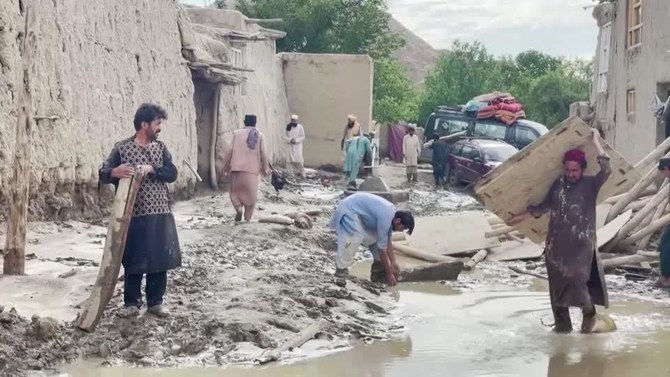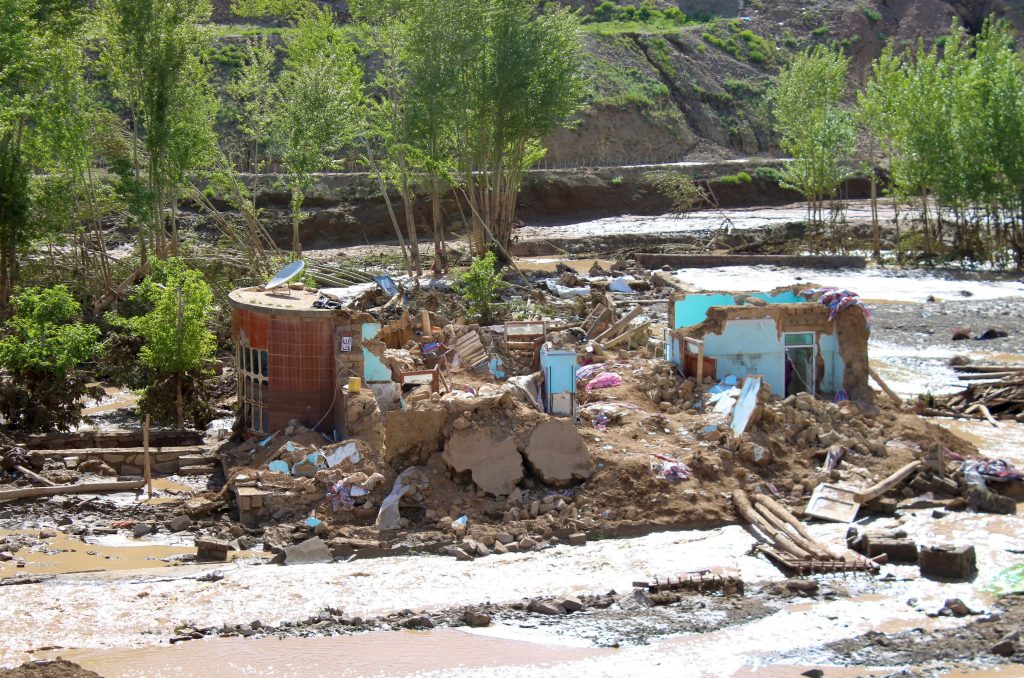Flash floods in Central Afghanistan kills at least 50

At least 50 people have died due to flash floods triggered by heavy rains in central Afghanistan, according to officials.
Authorities in Ghor province report that several individuals are still missing, with residents fleeing to higher ground just minutes before the floodwaters struck.
The floods have killed thousands of cattle, destroyed approximately 2,000 houses, and damaged many more.
This recent bout of heavy rain comes after widespread flooding in northern and central Afghanistan earlier in the week.
In the provincial capital, Firozkoh, around 2,000 shops are submerged, and most roads leading to the city have been cut off.
A local resident described “a huge and horrible flood” that swept away everything, as he and his family escaped to safety after receiving alerts from officials and mosque loudspeakers.
Zahir Zahid told AFP, “I watched the flood destroy my house with my own eyes. Women and children, everyone was crying.”
The province’s disaster management department has declared an “emergency situation” and is appealing for shelter, food, and water.
The provincial governor’s spokesperson, Abdul Wahid Hamas, stated that dozens of people are missing.
Last week, more than 300 people died due to unusually heavy rains that devastated numerous villages in the north, according to UN and Taliban officials.
The floods have left much of the farmland covered in thick mud in a country where 80% of the population relies on agriculture.

UN agencies warn that the death toll from the latest floods may rise as rescue efforts are hindered by inaccessible areas.
The heavy rains followed a prolonged period of drought earlier in the year.
Climate analysts indicate that Afghanistan, already suffering from years of war and isolation since the Taliban took power in 2021, is one of the least prepared countries to handle the impacts of climate change.
Afghanistan’s meteorological department has warned of more rain and potential floods across all provinces.
The UN’s World Food Programme reports that the worst-hit northern region, Baghlan, remains inaccessible by trucks.
The UN also states that survivors displaced by earlier flooding have been left without homes, land, or sources of livelihood.
Source-BBC





